What the Coast Guard Taught Me About Fraud
July 15, 2020
We all start out knowing nothing about money.
Fortunately, there’s a solution: learn about money.
Today, we’re going to discuss the best way to do that. But first, let me show you what can happen if you keep yourself in the dark...
When I graduated from the Coast Guard Academy in 1996, I was assigned to a ship in Port Angeles, Washington—a small, rainy town on the Olympic Peninsula. A couple of days after graduation, my fiancé and I packed up our ’95 Toyota Tercel and drove across the country.
During my time in Port Angeles, a couple of women from outside the military came to talk to us about a financial product they were selling.
They called it “assurance” and put up slides showing that $50 from every paycheck could grow into thousands of dollars. The growth rates they advertised were incredible.
There was no discussion about whether your money was invested in stocks or bonds or anything else. It was just pure magic.
Now, I was 22 years old at this point. It was before I worked on Wall Street... before I knew anything about the financial markets.
I had no clue what these women were talking about. Very few people in the military understand money, and they talked very fast. No one asked questions.
Nevertheless, I’m a cautious person, and I wasn’t going to put my money in something I didn’t understand. But some of the people on my ship invested in this “assurance” thing, authorizing automatic withdrawals from their paychecks.
A couple of months later, we found out the whole thing was a Ponzi scheme. They lured in early investors, didn’t invest the money in anything, and paid fake “returns” with the money they got from later investors.
Everybody lost money.
Fortunately, the people I knew didn’t lose much. The women had targeted various military bases in the area. But they caught us at the tail end, a couple of months before their Ponzi scheme was exposed.
All together, they swindled about $3 million from military folks. That’s about as sleazy as you can get.
Now, as I was watching this unfold, I felt completely helpless. I knew nothing about finance back then. So I couldn’t tell if it was legitimate or not.
I didn’t even have any radar about it—nothing said, “This smells funny.”
Of course, if I’d known what I know now, I would have torn them apart. It would have been very easy to tell whether this thing was a fraud.
I can tell you right now—anything that promises 20% a year risk-free is a fraud. But I didn't know that then, and I felt crippled by my lack of financial knowledge.
That’s when I decided to take responsibility for my own financial education. I started buying financial books, learning about the stock market and the bond market. And I’ve been learning ever since.
Those are all things you can do, too. The information is out there.
You can start by reading my free report, How Do I Start Investing? You’ll find links to more helpful resources inside the report. And if you run across a term you don’t understand, look it up on Investopedia. It’s a great tool when you’re starting out.
The harsh reality is, you should have a low level of trust when it comes to your money. This is why people invest with established firms.
But eventually, you may need to trust someone. The alternative is to learn enough to manage your own money, which is an option nowadays. You can pick out mutual funds or ETFs for yourself.
But again, you need to educate yourself first. If you don’t have the basic tools to evaluate one fund against another... or know how to put them together in a diversified portfolio, you’re going to run into problems.
The financial markets are a dangerous place for the uninformed. So start learning about money—you can download your free copy of How Do I Start Investing? by clicking here.
Jared Dillian

Most popular upgrades from The Jared Dillian Letter…
Heartland Investor: Jared’s newest premium service. Built for investors who want to start building wealth deliberately, durably, and without the hype.
Each month, Jared and his long-time analyst Adam Crawford bring you one undervalued stock with a strong balance sheet, wide moat, and room to run. Designed for thoughtful, fundamentals-first investors who want a portfolio that can last.

The Daily Dirtnap: Jared’s macro newsletter for investing professionals. This daily letter takes a top-down approach, looking at the various asset classes, including stocks, bonds, currencies, and commodities. Join over 4,000 readers who read his market insights every weekday.


Street Freak: As the most active of Jared’s portfolio products, Street Freak is an aggressive stock-picking newsletter. It’s written for astute investors who crave creative, fresh macro analysis and forward-looking trade ideas so they can invest more opportunistically, without much hand-holding along the way. Adjusted for risk, of course.
